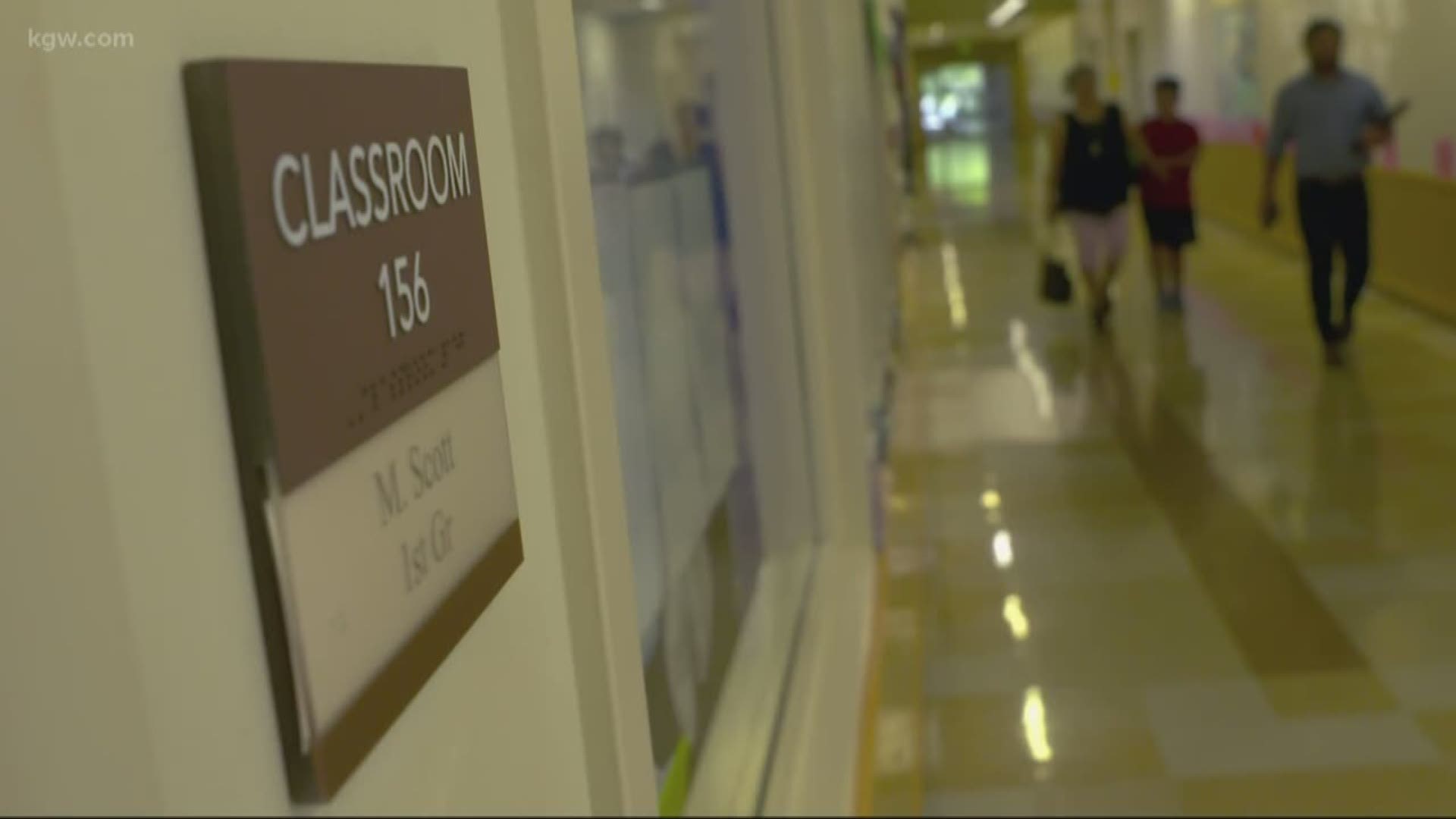CORNELIUS, Ore. — An Oregon school district is giving KGW an inside look at a program they say is working to prevent classroom disruptions.
KGW Investigates has been reporting on these intense, sometimes violent, outbursts happening in classrooms across the state for months.
The Hillsboro School District changed its approach to these behaviors by implementing "trauma informed practices" in 15 schools across the district three years ago.
Trauma informed practice is the belief that child who has experienced trauma in the past won’t be able to properly learn in school if that trauma isn't recognized or addressed in some way.
“We’re tackling this with a whole child approach," said Jennifer Johnson, a Hillsboro educator who helped implement the program. "There are other needs besides math, reading and writing that need to be met before our kids can even start to learn.”
According to the school district, the five main principles of providing trauma-informed care in the classroom are:
- Safety - The classroom activities and settings ensure the physical and emotional safety of students.
- Trustworthiness - The classroom activities and setting maximize trustworthiness by making the classroom tasks clear and consistent by maintaining boundaries that are appropriate to the school.
- Choice - The classroom activities and settings maximize student experiences of choice and control.
- Collaboration - The classroom activities and settings maximize collaboration and sharing of power between students and staff.
- Empowerment - The classroom activities and settings prioritize student empowerment and skill-building.
The principal of Free Orchard Elementary, Karen Murphy, said she’s noticed a big difference in the number of classroom outbursts since they’ve implemented the project.
“I absolutely feel like they are working. They know the vocabulary of, 'I’m feeling dysregulated, I need to take a break,' or when they need to breathe," said Murphy.
She said the number of district referrals for disruption has gone down by 80%.
Because of budget cuts six TOSA, or Teacher on Special Assignment, positions will be eliminated next year, including Jennifer Johnson's role as the district waits for money from the Student Success Act to come in.
The schools will still continue this work, including the us of the wellness centers, next school year.
More: Classrooms In Crisis
KGW has interviewed dozens of teachers and school administrators about an increase in verbal, physical and sometimes violent disruptions in Oregon and Southwest Washington classrooms. We've received emails from hundreds of additional teachers who tell similar stories. Many teachers say they don't have the proper training, support or resources to deal with this disruptive behavior. The teachers don't blame the kids, pointing out that many students have suffered trauma in their lives; however, they say the current law makes it difficult to handle these incidents effectively. In many cases they are forced to clear all other students out of a classroom until a disruptive student can calm down. We will continue to tell these stories and push for solutions from lawmakers and school officials.
Do you have a comment or idea related to our Classrooms in Crisis coverage? Please email callcristin@kgw.com

